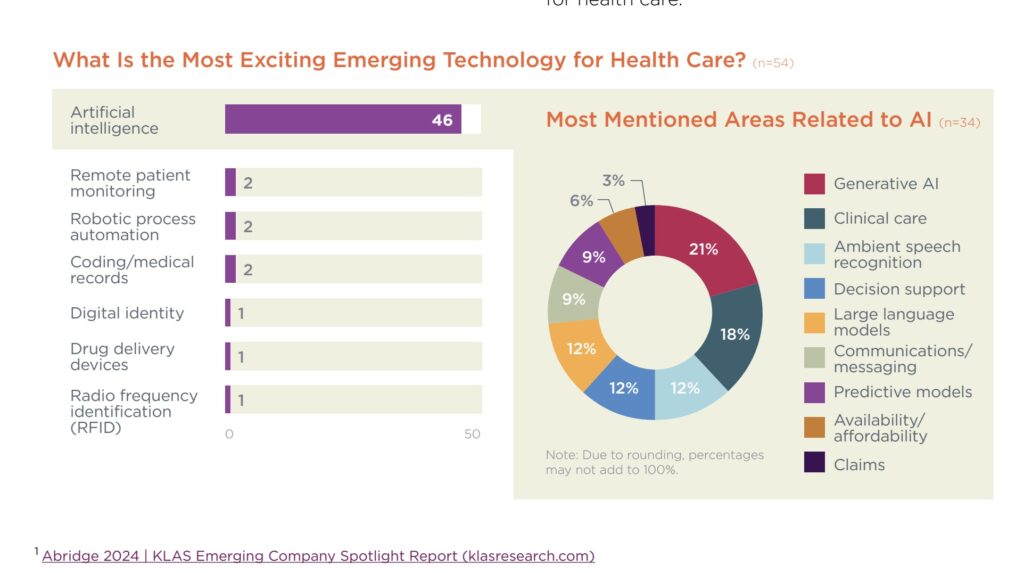
What You Should Know:
– A new survey by the Center for Connected Medicine (CCM) at UPMC reveals that artificial intelligence (AI) continues to be a top priority for senior leaders in the healthcare industry.
– For the second year in a row, executives cited AI as both the most exciting technology and the most improved, highlighting its potential to transform healthcare.
Generative AI Takes Center Stage
The Top of Mind for Top Health Systems survey, conducted in partnership with KLAS, gathered responses from representatives at 55 U.S. hospitals and health systems. Over 90% of respondents were C-suite executives or other senior leaders, primarily in information technology, operational, and administrative roles.
AI was cited as the most exciting technology by 85% of respondents, underscoring its growing momentum. Among the specific AI applications mentioned, generative AI emerged as a prominent focus, with executives exploring its potential for tasks like clinical documentation.
Telehealth and Virtual Care Gain Momentum
In addition to AI, telehealth and virtual care technologies were also identified as showing significant progress. These solutions, which gained widespread adoption during the COVID-19 pandemic, continue to evolve and offer valuable tools for improving patient care.
Addressing Key Healthcare Challenges
The survey also explored the challenges facing healthcare systems and how technology can address them. Patient care emerged as the top area where executives believe technology can make the most significant impact. Specific solutions mentioned include remote patient monitoring, decision support technology, and tools to enhance continuity of care.
“Health system leaders are understandably excited about the potential for AI to significantly benefit health care by by automating time-consuming manual tasks and freeing up clinicians to focus more on patient care,” said Robert Bart, M.D., chief medical information officer for UPMC, which is a founding partner of the CCM. “But the excitement also must be balanced with a commitment to high-quality care for patients and protections of their data and privacy.”

